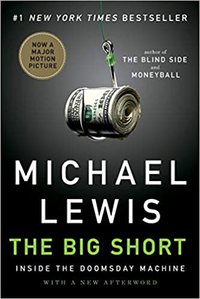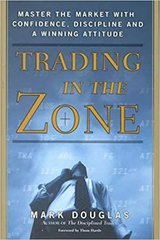The best trading books of all time…part one
Published 23-JUN-2020 14:12 P.M.
|
3 minute read
Hey! Looks like you have stumbled on the section of our website where we have archived articles from our old business model.
In 2019 the original founding team returned to run Next Investors, we changed our business model to only write about stocks we carefully research and are invested in for the long term.
The below articles were written under our previous business model. We have kept these articles online here for your reference.
Our new mission is to build a high performing ASX micro cap investment portfolio and share our research, analysis and investment strategy with our readers.
Click Here to View Latest Articles
Investing is on the rise, especially among young Australians. Indeed, in the five years between 2012 and 2017, the percentage of 18-24s with investments doubled from one in ten to one in five. Among 25-34s, it shot up from just under a quarter (24%) to 39%.
It’s clear, therefore, that Aussies want to use their money smartly. But investing can be tough. The same survey of traders quoted above found that 81% wanted ‘guaranteed or stable returns’ – a nice ambition, perhaps, but something that is tough to deliver.
The markets are a difficult beast to understand. It takes time, patience and experience – and even then, little is ‘guaranteed’. Still, there is one way to improve your chances of success – to read more. Reading the insight of experts is invaluable – it opens your eyes to new tactics, explains the previously inexplicable and offers analysis on the highs and lows of the past.
The trick here is to read the right books. IG’s market experts have accumulated a list of the top ten trading books of all time – and we’ve teamed up with them to show you what they’ve selected across two posts.
In this first part, we’ll look at the first five, starting with a book that was so successful that it became an award-winning Hollywood film:
The Big Short, Michael Lewis
What’s it about? This is a popular account of the 2007/08 housing crisis in the US which sparked a global financial crisis. It tells the tale of the people who bet against the subprime mortgage market and profited from its subsequent crash.

Why did IG pick it? It’s an accessible account of the crisis – as evidenced by the fact it inspired a film – but it’s about more than that. It explores what makes a successful trader ad how and why a group of short-sellers embark on their strategy – with insight into the complexity (and weakness) of the financial system.
Trading in the Zone, Mark Douglas
What’s it about? This book delves into the psychology of traders. It looks at common dangers, myths and how to overcome loss-inducing behaviour and was written by Mark Douglas, who taught traders how to master their psychology.

Why did IG pick it? James Stanley, DailyFX currency analyst, wrote: 'Trading in the Zone was the first trading book that I read and said: ‘Now that was a great book on trading’. It hits on the very core and important elements of psychology and probability and stands as one of the best practical guides to becoming a better trader.”
Market Wizards, Jack D Schwager
What’s it about? It’s an anthology of interviews with the best in the business – looking at the stories behind some of the biggest trades of all time. These include, for example, the T-bond futures trader who managed to turn $25,000 into $2 billion in just one day. Interviewees include Bruce Kovner, Richard Dennis and Paul Tudor Jones – with topics ranging from forex to stocks, futures and bonds.
Why did IG pick it? The sheer breadth of the interviews makes for a fascinating read – with the chance to join the dots and appreciate the common ground between all of the successes. The 2012 edition features a fresh chapter from Jack D Schwager, looking back at what he learned putting the book together 22 years earlier.
When Genius Failed, Roger Lowenstein
What’s it about? This is the story of Long-Term Capital Management (LTCM), the hedge fund that collapsed in 1998 having previously managed more than $120 billion. It’s split into two parts – the first in which award-winning economists explore the firm’s business model and explain how it became successful and the second which delves into its downfall.
Why did IG pick it? The book is based on a rich source of interviews, including those with employees of the hedge fund and people from the Federal Reserve, which bailed it out. It’s definitely a case study in the dangers of complacency, something all traders have to guard against.
Investment Biker, Jim Rogers
What’s it about? Jim Rogers – co-founder of the Quantum Fund and something of a Wall Street legend – takes a tour of 52 countries in just under two years. This book outlines what the ‘Indiana Jones of finance’ found.
Why did IG pick it? It’s a unique take on the world – blending investment advice with elements of a travel memoir. It’s great for helping traders to take a global perspective – something that is crucial in a globalised world.
Check out our next post to see the remaining five of the top ten books selected by IG.
General Information Only
This material has been prepared by StocksDigital. StocksDigital is an authorised representative (CAR 000433913) of 62 Consulting Pty Limited (ABN 88 664 809 303) (AFSL 548573).
This material is general advice only and is not an offer for the purchase or sale of any financial product or service. The material is not intended to provide you with personal financial or tax advice and does not take into account your personal objectives, financial situation or needs. Although we believe that the material is correct, no warranty of accuracy, reliability or completeness is given, except for liability under statute which cannot be excluded. Please note that past performance may not be indicative of future performance and that no guarantee of performance, the return of capital or a particular rate of return is given by 62C, StocksDigital, any of their related body corporates or any other person. To the maximum extent possible, 62C, StocksDigital, their related body corporates or any other person do not accept any liability for any statement in this material.
Conflicts of Interest Notice
S3 and its associated entities may hold investments in companies featured in its articles, including through being paid in the securities of the companies we provide commentary on. We disclose the securities held in relation to a particular company that we provide commentary on. Refer to our Disclosure Policy for information on our self-imposed trading blackouts, hold conditions and de-risking (sell conditions) which seek to mitigate against any potential conflicts of interest.
Publication Notice and Disclaimer
The information contained in this article is current as at the publication date. At the time of publishing, the information contained in this article is based on sources which are available in the public domain that we consider to be reliable, and our own analysis of those sources. The views of the author may not reflect the views of the AFSL holder. Any decision by you to purchase securities in the companies featured in this article should be done so after you have sought your own independent professional advice regarding this information and made your own inquiries as to the validity of any information in this article.
Any forward-looking statements contained in this article are not guarantees or predictions of future performance, and involve known and unknown risks, uncertainties and other factors, many of which are beyond our control, and which may cause actual results or performance of companies featured to differ materially from those expressed in the statements contained in this article. S3 cannot and does not give any assurance that the results or performance expressed or implied by any forward-looking statements contained in this article will actually occur and readers are cautioned not to put undue reliance on forward-looking statements.
This article may include references to our past investing performance. Past performance is not a reliable indicator of our future investing performance.

